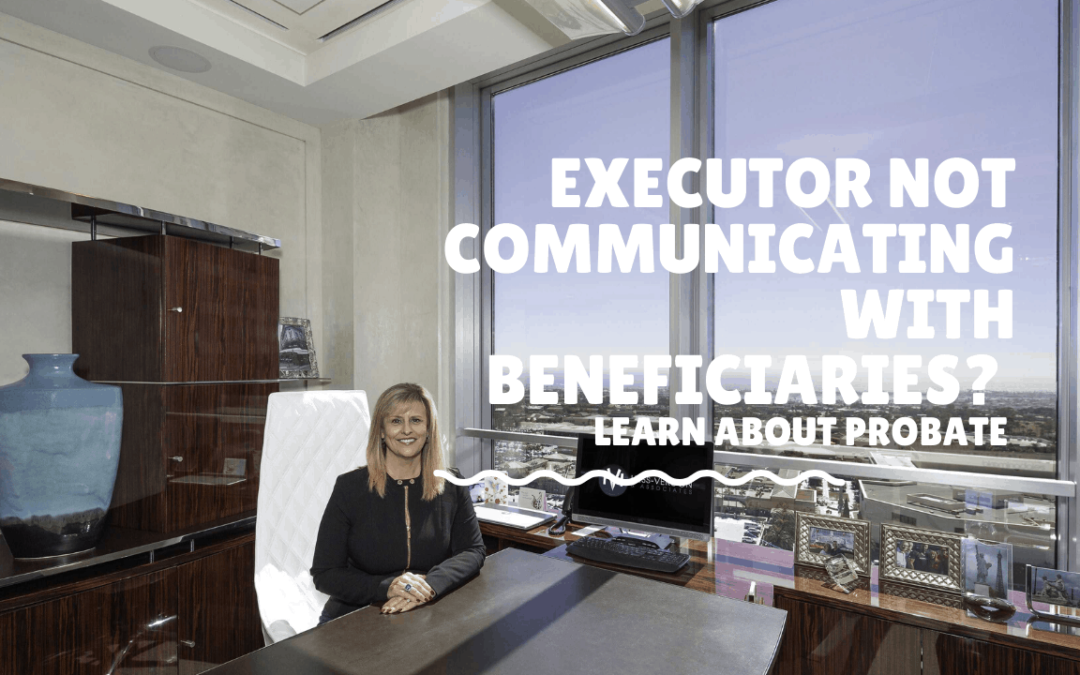A Professional Law Corporation
What types of Assets are Subject to Probate? Contact UsATTORNEY PROFILESProbate and Estate Assets: What to Consider!
During these trying times, we know it is vitally important for you to save time and money. Is peace of mind important to you? Rest assured that our highly qualified attorneys will assist you every step of the way.
Probate and Assets
Once you have been appointed as administrator or executor, you will need to make a list of assets and decide what should be subjected to probate and what should not. Only assets considered as “probate property” should be listed on the forms filed in the probate court.
Most assets, including real estate and retirement accounts, do not require probate. When you run a probate court action for the estate, you won’t have to have everything filed. That’s good news because non-probate assets can pass on to inheritors very quickly.
These assets always get subjected to probate.
Many types of probate properties exist. A common feature of these assets is that they were once owned by the deceased person and are now part of a probate court process because they are separately owned property the decedent held in their name.
The probate court proceedings help transfer those assets to the beneficiaries based on the state’s intestate laws or the deceased person’s will.
Types of probate assets include:
Separately held assets
Individual assets include all the deceased person’s property held in their name. This type of asset has no other owner or beneficiary to claim interest on the property.
This type of inheritance is also not designated to be paid to creditors (payable at death). Common personal assets can include bank accounts, investment accounts, bonds, stocks, cars, boats, aircraft, business interests, and real estate.
Tenancy in common assets
Here the assets are titled in the name of the deceased and the name of another party. The decedent and the other party own the property as tenants with equal rights. Examples of these assets are jointly held bank accounts, investment accounts, stocks, bonds, cars, boats, real estate, and business interests.
Beneficiary assets
These are assets paid on a deceased person’s death, such as a life insurance account, medical savings account, living space, retirement account, life insurance policy, or pension whose named beneficiaries predecease the grantor.
Probate assets examples
· Personal belongings, such as cars, utensils, and jewelry
· Real estate with the name of the deceased only or held by the same tenant
Usually, most assets left by the decedent do not need to be subjected to probate. Let’s say a husband who is now dead owned everything in common with his surviving wife. The spouse automatically and legally inherits the jointly held assets without needing probate.
Non-probate assets are not part of the probate process; they are not included in the probate court list and cannot be touched by the named or court-appointed executor.
Non-probate assets examples
Assets in a trust
Many people put their assets in trusts to avoid probate. Their trustees are authorized to execute trust orders, including the distribution of trust assets to beneficiaries per the grantor’s wishes.
Assets with a named beneficiary
Typical examples include life insurance policies, IRAs, 401 (k) s, and pensions. Other assets such as real estate or vehicles are non-probate assets if they have a transfer on death (TOD) provision.
Everything jointly owned with survivorship rights
Survivorship rights imply that in the event of one owner’s death, the other owner automatically receives the interest of the deceased owner of the property. Examples include father-son businesses or homes owned by married couples. These assets are held under the joint tenancy with survivorship or tenancy by the entirety.
As you plan your estate, you need to think about both your probate and non-probate assets. Your will could become what aids and speeds up the future distribution of your assets for the benefit of your surviving loved ones.
Be sure to double-check the type of ownership you have over your assets and accounts to ensure that any shared assets will be distributed to beneficiaries according to your wishes. You should also periodically review your listed beneficiary options and update them as appropriate.
Consult with a probate attorney.
Meet Our Team
Probate Overview
- Probate Litigation
- What happens if you don't probate a Will
- What an Executor of an estate cannot do
- Does the Executor have the final say?
Are you looking for a probate attorney in the Newport Beach area? When it comes to the practice of trust and estates, it can be difficult finding an attorney that’s experienced in handling your specific issues.

How to Hire a Probate Court Attorney for Litigation Matters
How to Hire a Probate Court Attorney for Litigation Matters The time accompanying the death of a loved one is typically quite challenging and emotional. Not only do you have this massive grief to process, but you may also be required to handle some practical matters,...

Executor Not Communicating with Beneficiaries | What to Do!
Executor Not Communicating with Beneficiaries Executors have a fiduciary duty to keep beneficiaries informed about estate proceedings and decisions. If communication is lacking, beneficiaries are entitled to seek court intervention to mandate transparency and regular...
